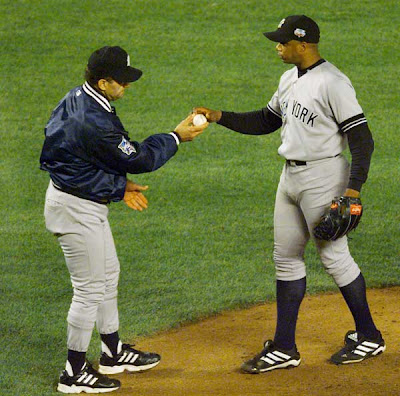
Fast Company
By John Schulian
I never wrote as a fan. To civilians, especially every Cubs fan who ever told me to go back to the South Side because I’d written a column on the White Sox, that may seem a startling confession, but there’s no getting away from the truth. I wrote sports because I yearned to be a writer and the sports page provided a laboratory where I could conduct my experiments with words. When I was breaking into the newspaper racket, there was a freedom of style in sports that couldn’t be found anywhere else. Contrary to what I see too often now, when most every columnist seems to be shouting ceaselessly, I could do a character sketch, attempt whimsy, review a book, and rant and rave about whatever was vexing me all in the same week. The idea was to entertain my readers, but the truth is, I was trying to entertain myself, too.
On the days I succeeded, it was often because I had written about a boxer with a hard past or a ballplayer who had more stories than base hits. I was never a funny writer, the way Jim Murray, Leigh Montville, and Mike Downey were, but I embraced characters who could make me and my readers laugh. And yet there was a melancholy streak in my work, too–the athletes who died young, the broken-down gyms where fighters chased their dreams, the hardscrabble playgrounds where basketball looked like the only alternative to drugs and gangs. Those were the pieces that put sports in perspective, though people never seemed to react to them the way they did when I was cutting someone up in print. When I die, if anybody bothers to write my obituary, I fully expect to be identified as the columnist who called Billy Martin “a mouse studying to be a rat.”
The important thing, if you cared about your craft, was that you had to be good a lot more often than you were bad or the competition would bury you. I’m talking about the years between, say, 1960, when sportswriting’s Chipmunks started nibbling away at sacred cows, and the mid-90s, when the sports page was finally overwhelmed by the screeching talk-radio mentality that continues to assault us.
In the beginning, Red Smith and Jimmy Cannon were still around to remind the new wave of what true greatness was. As good as we were – and I think we represented the golden era of sportswriting–none of us ever reached the heights they did. And there were plenty of other writers, younger than Red and Jimmy but older than we were, whose very presence gave us a sense of perspective: Murray in L.A., Edwin Pope in Miami, Furman Bisher in Atlanta, and Blackie Sherrod, who, before he conquered Dallas, made Fort Worth the launching pad for Dan Jenkins, Bud Shrake, and Gary Cartwright. Then there was Ray Fitzgerald, Montville’s stable mate in Boston, and Wells Twombly, a world-class columnist wherever he traveled, and he traveled a lot before landing in San Francsico. And a pox on my house if I neglect to mention Vic Ziegel, Ira Berkow, Sandy Grady, Stan Hochman, and Larry Merchant, whose wry, cerebral column influenced more young writers than anyone will ever know.

They cleared the beach for the wave of columnists I rode in with: Montville, Dave Kindred, Mike Lupica, David Israel, Bill Nack at Newsday, Joe Soucheray in Minneapolis, Scott Ostler in L.A., Skip Bayless in Dallas, Ray Didinger in Philadelphia, and, begging his forgiveness for putting him last in this sentence, Tony Kornheiser. I always thought that Tony’s true genius lay in long newspaper features and magazine work–his profile of tragedy-stricken Bob Lemon will tear your heart out–but he tripped the light fantastic as a columnist, too. While Tony worked in New York and Washington, D.C., on papers where the spotlight was automatically his, Tom Archdeacon was lost in the shadows. You had to go out of your way to track down his evocative prose in the tattered Miami News, but it was always worth the trouble. Likewise, you had to keep an eye on Detroit, where Mike Downey’s star shined brightly and Shelby Strother and Mitch Albom found their way to town by the light it gave off. The auto industry was going to hell, but Detroit could claim a procession of wonderful sports columnists. And Elmore Leonard, too.
I read them all every chance I got. When I was at the Washington Post, still dreaming of becoming a columnist, there was a wall in a corner of the newsroom stacked with out-of-town papers, and I used to plow through it seeking out the bylines of old heroes and new competition. I still remember how good Lupica was when the New York Post let him have a two-week summer fling at writing a column. I’d just met him at the 1976 NBA finals, this baby-faced kid who looked like he’d fit in your pocket, and here he was writing with verve and moxie that left me wilted with envy.
There was a lesson there, just as when I started reading Kindred regularly and realized that he had studied the cadences of Red Smith’s sentences as religiously as I had. If I was going to be anything better than ordinary as a columnist, I would have to work my ass off, and it wouldn’t hurt if I wrote about things that appealed to my writerly instincts as often as I could. There were days when I couldn’t ignore the news–the big trade, big firing, big game–but when I was left to my own devices, I went where my heart took me.
For me, the best sports to write about were baseball and boxing. I felt as though I understood baseball in a way I never would football or basketball or, God help me, hockey. Baseball was still producing characters then, and better still, I was well versed in its history. But the truth of the matter was that the game still fell short of boxing when came to material that made for memorable writing. There were characters and shenanigans and life and death. I mean death literally. I saw it happen in Montreal, where a fighter named Cleveland Denny was fatally injured on the undercard of Leonard-Duran I. In the very next fight, Big John Tate, an Olympic heavyweight who was supposed to have a solid gold future, got knocked out and one of his legs started twitching uncontrollably. All I could think was, Jesus Christ, two in two fights? Tate lived, though. Cleveland Denny didn’t.

I can gin up a defense of boxing if I’m cornered, but I’d rather just tell you that I realize what a dreadful sport it can be and I love it just the same. I love the stink of the old gyms, and the fighters with their dreams that are almost sure to go bust, and the crotchety ancients who untangle their fighters’ feet and tend to their wounds and offer up wisdom written in the blood of those who didn’t heed them. Sometimes I even stop hating promoters and managers, though never long enough to think of them as anything except potential thieves. But it is the fighters I always come back to, the guys who step into the ring knowing they may die in it.
In a sport filled with liars–charming, quotable liars, but liars just the same–there is an open-book honesty about the fighters that could disarm the most resolute cynic. Want to know why a fighter ended up in jail? Want to know how it feels to fight with broken ribs? Want to know how desperately he craves a woman after going without during training? They would tell it all to you, and then invite you to a party after the fight, the way a Baltimore brawler named Wild Bill Hardney did one night. “Party at Loretta’s,” he said, which sounded great until Wild Bill’s wife read about it in the next day’s paper and asked him ever so sweetly just who the hell Loretta was.
Click here for the full “From Ali to Xena” archives.



























